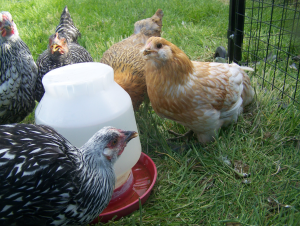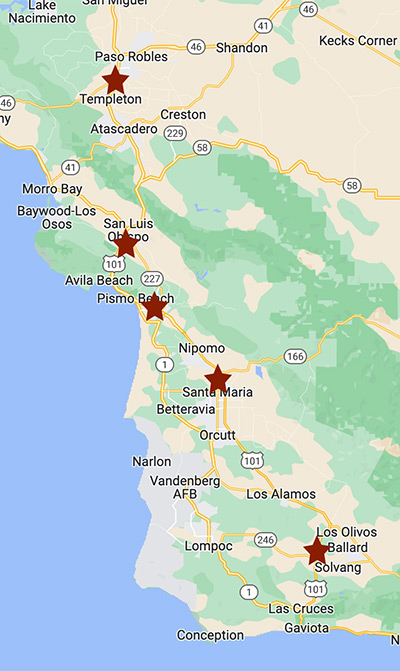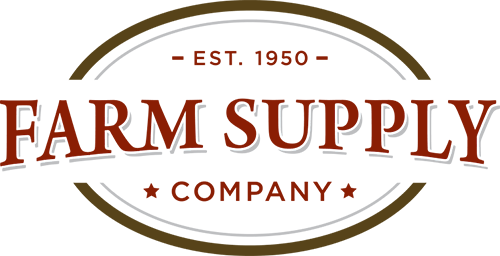Like all living things, chickens need water. It’s essential for digestion, egg production, and regulating body heat. On oppressively hot summer days hens, because they lack an ability to sweat, spread their wings and pant.
Water evaporating from their mouths and throats cools bodies but must be replaced by frequent drinks. Chickens don’t drink as much in winter but they still need plenty of fresh water daily.
Owners have many ways to keep clean water constantly accessible to chickens. The simplest and least expensive waterer is an old fashioned bucket. Those made of heavy duty rubber never dent and are indestructible. The downside of buckets is their relatively small capacity, the ease birds have tipping them over, and a large water surface, which allows dirt and feces to enter.
Commercially built waterers work well. Most hold three to five gallons and have a relatively small surface area, tending to keep water clean, thus reducing evaporation and spillage. Because they hold more water than buckets they need to be refilled less often.
Hauling heavy buckets from a distant tap is a time consuming chore. Rain falling on the coop’s roof and channeled through the gutters into a rain barrel puts plenty of water right where it’s needed without pipes. Typical rain barrels hold around 50 gallons and fill during a light shower. Filling buckets from a spout at the bottom of a rain barrel is easier than hauling it a distance.
Fortunate chicken owners have a hose tap near their coop. They can use automatic waterers hooked to the hose. These systems refill by themselves. There’s no chance of running out and spillage is minimal.
Winter challenges all types of waterers, but there is a simple solution. Electrically heated chicken and pet waterers can be purchased. All are thermostatically controlled to keep ice from forming. The downside is that birds can easily tip over some electric water dishes. A simple cradle made of scrap prevents the problem. Even on the coldest days the heating unit keeps the water liquid and the birds happy.
Blog post by Nutrena Animal Feeds, original posted by Twain L.


